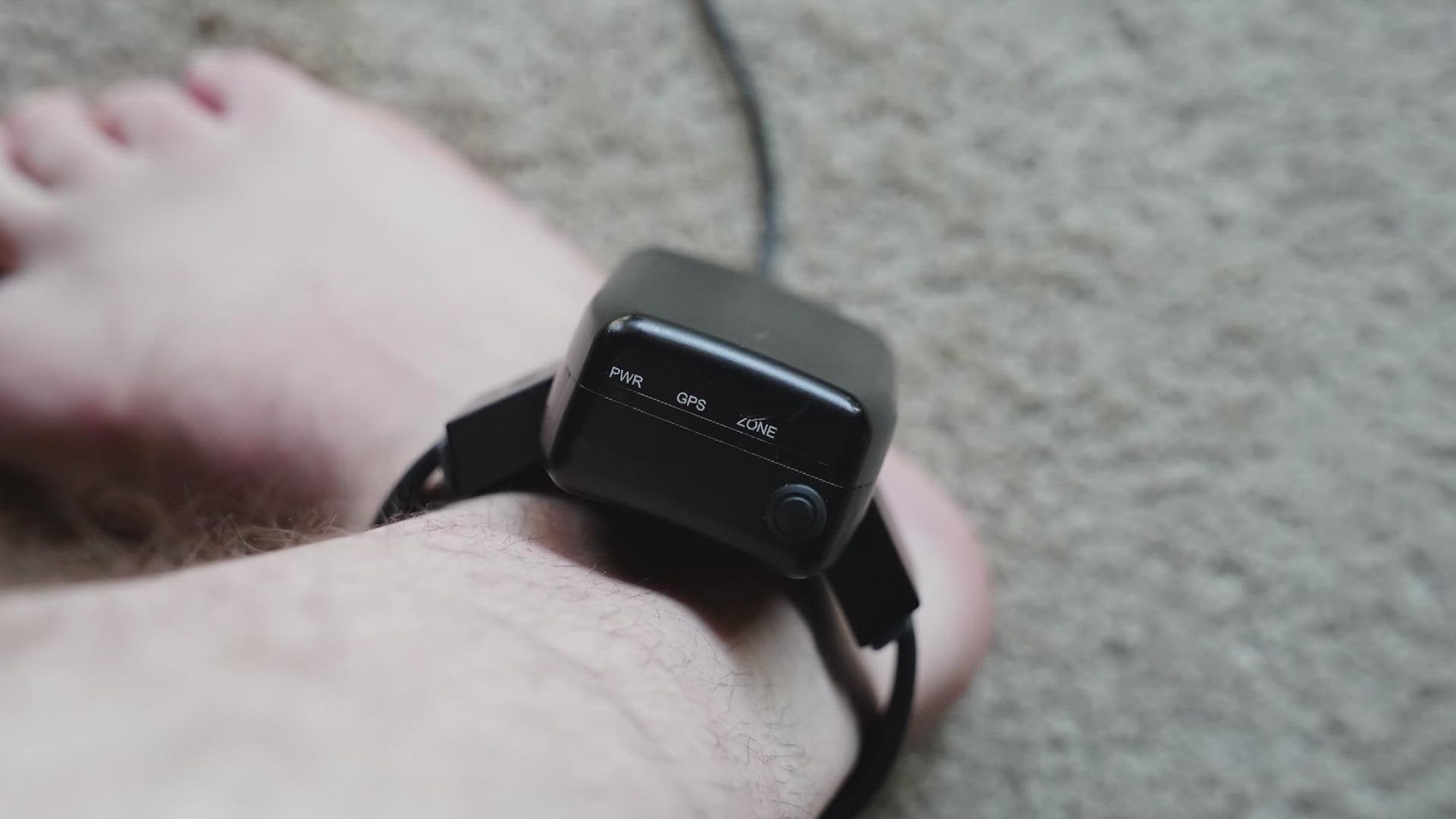TEXAS, USA — With Texas' 88th Legislative Session beginning next week, Texas Gov. Greg Abbott is asking lawmakers to crack down on parolees who cut off their ankle monitors.
On Thursday, Abbott sent a letter to Texas Lt. Gov. Dan Patrick and Texas House Speaker Dade Phelan calling for state lawmakers to create criminal penalties for parolees who cut off their ankle monitors and prioritize their arrest.
This letter from Abbott comes two weeks after he directed the Texas Board of Pardons and Paroles (BPP) and Texas Department of Criminal Justice (TDCJ) to investigate any lapses in the release and parole supervision of the alleged suspects. That directive from Abbott specifically cited two cases from the Dallas area – Nestor Hernandez and Zeric Jackson. You can read more on the background of their cases here.
In October, police said Hernandez walked into Methodist Hospital Dallas wearing an ankle monitor while out on parole. Police say he shot and killed a nurse and a case worker after a violent argument with his girlfriend.
Prior to the incident police say Hernandez cut off his ankle monitor and had 3 other violations yet his parole was not revoked.
"It is clear that the ankle monitors, a condition of their parole, were not effective in deterring or otherwise preventing these individuals from going on to commit violent crimes, resulting in three innocent lives being lost," Abbott wrote in the letter. "Based on the report, it is clear that legislative action is needed. Currently, there are no criminal consequences for a parolee cutting off an ankle monitor. Texas cannot allow violent criminals who jeopardize public safety back into our communities. I look forward to working with you to accomplish these changes and other legislative initiatives that will keep our fellow citizens safe."
On Dec. 28, the BPP and TDCJ responded to Abbott's request for an investigation and sent him back a joint report from the two agencies.
This report from the BPP and TDCJ was included in Abbott's letter sent to state lawmakers on Thursday.
In the report, the BPP said it did not identify any findings or lapses in the decisions to release Hernandez or Jackson. The TDCJ said in the joint report that Hernandez was "non-compliant regarding his obligation to attend anger management and aftercare support groups." TDCJ's findings also noted that Hernandez's parole officer "did not properly document interactions in the record or elevate the sanctions as required through the graduated sanctions model." TDCJ said Hernandez had several parole officers assigned to him while on supervision, and the officer who supervised him upon release for three of the four months while he was on active supervision is no longer with the agency. TDCJ's investigation also found warranted disciplinary action for five other people who either "supervised Hernandez or were in supervisory positions." Two of those five have left the agency, two others were disciplined and the fifth person was "recommended for dismissal," TDCJ said in the joint report.
Similarly, TDCJ said the parole officer for Jackson "failed to properly check his GPS coordinates and failed to follow policy to complete necessary in-person and collateral contacts with [Jackson]."
TDCJ's investigation revealed Jackson was deviating from his pre-determined schedule and going to the home of his former girlfriend. The agency said GPS coordinates determined he made 16 unapproved visits to that location.
This officer was recommended for dismissal, TDCJ said in the report.
“We need to continue to hold individuals accountable we need to have transparency. Transparency cannot just exist for law enforcement front line with police departments but need to exist for other parts of criminal justice,” said Dallas Police Chief Eddie Garcia.
As a result of TDCJ's investigation, the agency said it conducted a comprehensive review of operations at the Dallas Parole Offices, as well as statewide, and retrained all employees who have direct interactions with parolees regarding supervision requirements. The TDCJ said its Parole Division has designated a team of administrators to conduct unannounced field audits to ensure compliance.
To conclude the joint report, the BPP and TDCJ recommended that the Legislature enhance the penalty for cutting off an ankle monitor. The agencies noted that, under current state law, the act is an administrative violation and causes the immediate issuance of an arrest warrant, but is not criminal offense. The BPP and TDCJ said "enhancing the penalties may act as a deterrent and dissuade those already on heightened supervision from attempting to evade supervision."
Jackson and Hernandez's arrests marked two of three murders in Dallas involving a parolee fitted with an ankle monitor within a two-week time period, WFAA reported in early November.
"I’ve said it before, ankle monitors do not work on violent criminals. I think first and foremost, we need to look at individuals' criminal history and the crimes they have committed to see if they would even qualify to have an ankle monitor,” said Garcia.
Garcia said it’s not just ankle monitors but also violent offenders who are released early. On Wednesday, he said Dallas police officers were shot at by 31-year-old Kevin Knowles. The SWAT team had to deploy tear gas after a six-hour standoff in a drainage culvert near a golf course.
Knowles is a convicted felon on federal probation after he spent some time in prison for having an unlawful weapon.
”By continuing to say we are serious about gun violence and we see individuals on the streets that have committed gun violence back out in two weeks, that’s not taking it seriously,” said Garcia.
Garcia said there needs to be more scrutiny on other people in the criminal justice system, not just police and hold them also accountable for public safety.
More Texas headlines:

